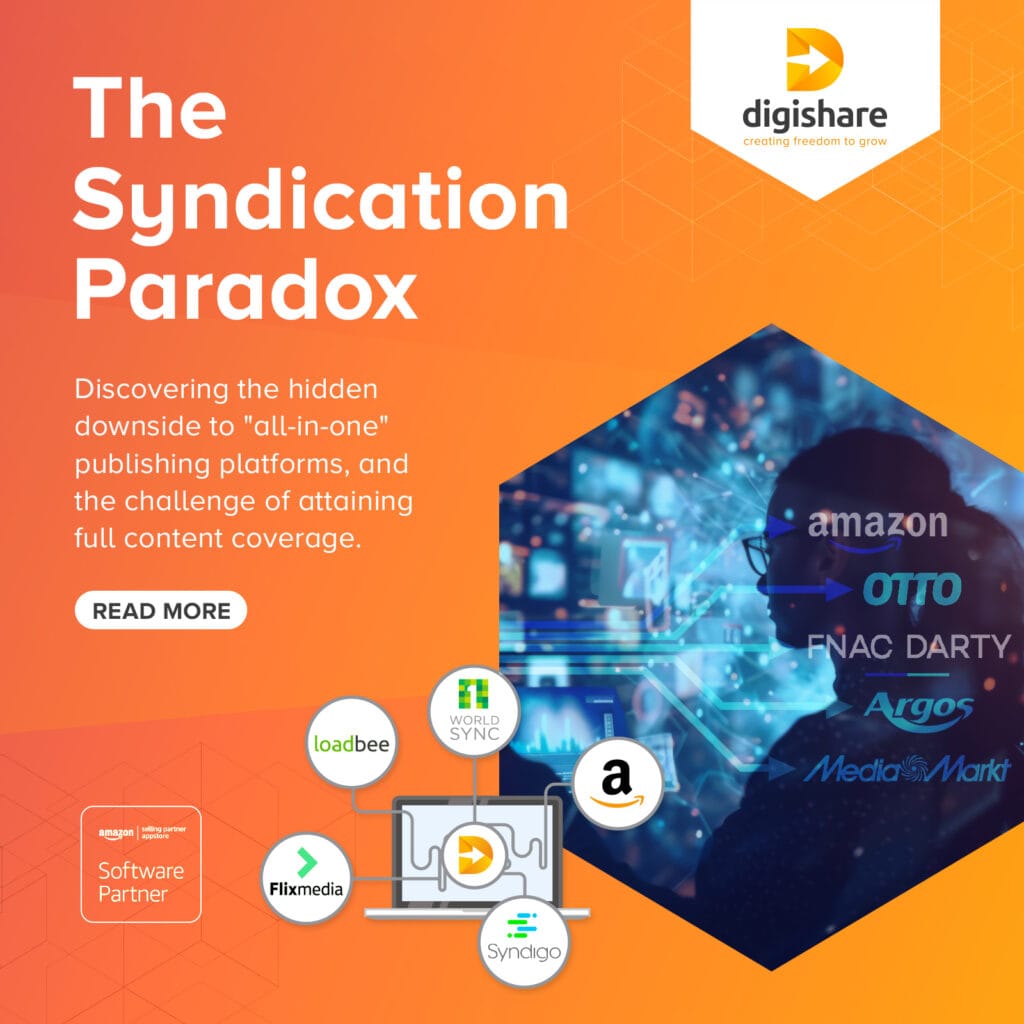The Syndication Paradox
The hidden downside to “all-in-one” platforms

It’s not difficult to see the appeal of partnering with an “all-in-one” platform. It seemingly removes a lot of the stress, churn, and inefficiencies of dealing with multiple providers to organise, optimise and publish your product content. With everything in the same platform, it should be easier to track individual product launches, measure overall performance, and have a single point of contact to service your needs, Sure, the service might not be the most cost effective overall, and the system is too rigid to accommodate all of your requirements, but no platform is perfect, right?
The issue is that once you dig a little deeper beyond the impressive UIs and slick sales pitch, you’ll inevitably find that these come with some serious compromises, including one that undermines the core concept of an “all-in-one”.
Syndication: why is it important?
Anyone publishing content in the online retail space will be faced with an inescapable fact: syndication is necessary to get your product copy in all of your key retailers. Sure, there are some giants such as Amazon who have agnostic processes and APIs. These allow multiple different platforms to utilise them and publish your product content to their retail space. However, many retailers, including some large regional players, only accept content provided via feeds from their syndication partners. These syndicators collate product content for a wide variety of clients, and provide it for publication via an automated feed, thus removing the need for the retailer to manage their own publishing process, and ensuring all data is provided in the correct format.
Syndication: why is it a problem?
Any “all-in-one” platform will include syndication as part of their service, providing automated feed of your product information to their partners.
The issue is they will never give you full coverage. The nature of the business means some of your intended retailer partners will work with other syndicators. And your new platform will never be able to connect with them, because why would a rival syndicator grant access for such a connection? Allowing a direct competitor to do so would never make any business sense.
In this scenario, you would be left with having to export your product content out of your all-in-one platform and reformat it to provide to the other syndications needed to cover your full range of retail partners. This can often be an intensive process, prone to error, and leaves you in a situation where, regardless of the promise of an all-in-one solution, you’re still having to engage and optimise for multiple services.
Compromises upon compromises
If the core promise of an all-in-one solution rings hollow, then it can be worthwhile interrogating just how beneficial the service is as a whole. As mentioned before, such a comprehensive system brings with it a level of rigidity, and many are often unable to accommodate individual client needs (without extensive upsell). This lack of flexibility may extend to delays in adapting to new retailer requirements, technical changes, or finding solutions to edge-case issues that fall outside the norm for most of their clients.
Systems such as PIM are incredibly technically complex and require the correct setup and implementation from the very beginning. Connecting with large retailer systems benefits from the expertise of staff intimately familiar with the systems of the client, retailer and their own platform. By choosing a generalist platform over a focused service, you may be losing out as this skill and experience is diluted across a wide variety of functions.
Finally, as the issue of syndication is inescapable, then it is often worthwhile to explore engaging with multiple services to get your product content everywhere it needs to go. By choosing specialists in each area, you can secure best-in-class service paired with lengthy experience in connecting and integrating with other services.
There is a better way
Having a joined-up content process isn’t unachievable outside of all-in-one solutions. To see what a retail-focused platform can do for you, why not explore a RAMP (Retail Asset Management and Publishing) such as Digishare? Book a free demo today to see if it could be the solution you’re looking for.


